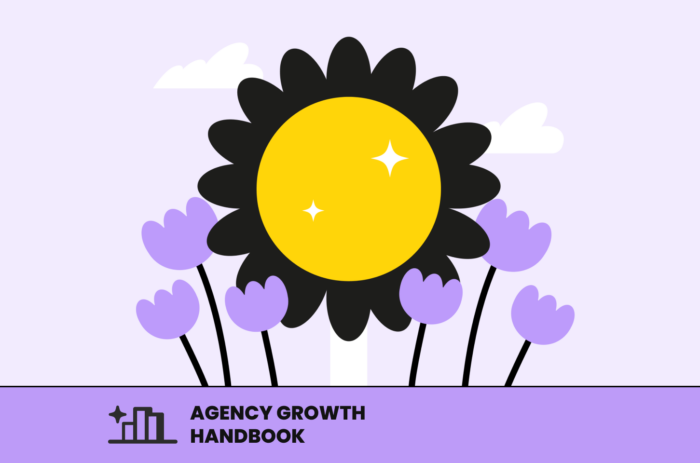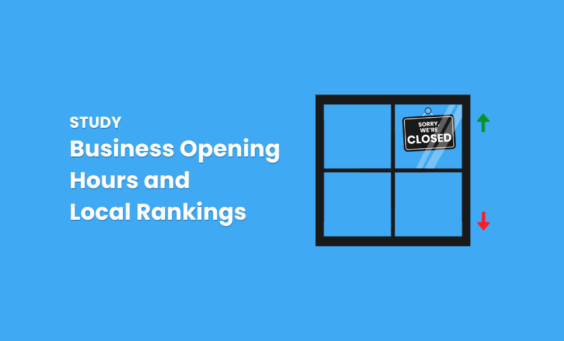This article is from our Agency Growth Handbook—a collection of guides created to help local SEO agencies grow and succeed. It is chapter two of ‘Part One: Pitching and Onboarding‘.
Believe it or not, you’re not the sole agency providing local marketing, SEO, or digital marketing services. Surprising, right?
The reality is that you aren’t just competing against a couple of other agencies; you could be competing against hundreds. According to IBISWorld, in 2023, there were 187,705 SEO and Internet Marketing Consultants in the USA. That makes for a very busy space.
It also means that setting your agency apart is imperative. You can’t just set up shop, offer the exact same services as others around you, and hope that’s enough.
We touched on this briefly in the first part of the Agency Growth Handbook, where we helped you define your positioning. In some cases, it could be as simple as being the only agency specializing in local SEO in your town. In others, it could be the niche you choose to target. Sometimes it isn’t that simple, though.
So today, we will hear from agency experts on how they help their agencies stand out from the crowd. We asked each of these experts the same three questions, and here’s what they had to say about getting noticed, creating a unique selling point (USP), and hindsight.
We asked each expert the following three questions:
- Getting Noticed
In a crowded field of SEO agencies vying for the same clients, it can be incredibly hard to stand out amongst your competitors. Before you even have the opportunity to pitch and stand out in your offering and in-person approach, you need to get noticed amongst the crowd in the first place. With this in mind, what sorts of things does your agency do to get noticed and get prospects saying ‘yes’ in a crowded field? - Developing a USP
With that in mind, developing a USP is something many agencies try to accomplish. That could be a particular service, process, metric, or simply how they treat their people. Do you have an actual USP, and if so, how did you develop it? - Hindsight
If you were starting from scratch, what would you do differently when creating your proposition?
Amanda states that the key for RicketyRoo has been being a positive part of the local SEO community, offering true transparency to its clients, and looking ahead.
1. Getting Noticed
Honestly, what we do to get noticed is what we tell our clients to do to rank and grow their businesses. We just work on being a positive and impactful part of our community.
2. Developing a USP
Blake Denman is the man behind our USP. We are refreshingly transparent and upfront. This isn’t just with our clients but also applies to how we work within our team and present to the industry.
3. Hindsight
Focus on the horizon, not the rearview mirror; hindsight is not a guide. We’re focusing on seeing where this road takes us.
For Joy, the key has been tapping into their in-house expertise and properly showcasing it to the world. It’s about being knowledgeable in a noisy way to help bring a strong inbound funnel for their sales.
1. Getting Noticed
I think the best sales approach is to have a strong inbound funnel so that you have people contacting you who have already researched you.
At Sterling Sky, we don’t do any outbound sales. When leads reach out to us, we usually don’t have to “brag” too much about our accomplishments because the businesses have already seen it on our website.
We have a very strong social media presence and newsletter and are well-represented at conferences, podcasts, and webinars.
2. Developing a USP
Our USP is that we are trend leaders in the local SEO space and understand the local algorithms very well. We are often the first to put out case studies about new concepts and ranking factors. We have also discovered and named almost every local algorithm update Google has done in the last decade. The most recent one was the Openness algorithm update, which we shared and got Google to confirm shortly afterward.
Our other advantage is that we have a team of well-known experts in the local SEO space. There are nine employees at Sterling Sky that contribute to the Local Search Ranking Factors Study every year.
3. Hindsight
I’d probably change nothing. We share a ton of information about SEO tactics we have succeeded with. Some people think this idea of “giving away your secrets” is nuts, but I would argue that it helps identify us as experts and is also the main reason why businesses want to work with us.
Emily says that tmwi focuses a lot on educating its clients. In addition to sharing their knowledge with the wider community, they double down on keeping their clients up-to-date and in the know. For tmwi, it’s all about using this education to help uncover things that many other agencies simply don’t look at and make new processes around it.
1. Getting Noticed
SEO still has a reputation as a ‘dark art,’ meaning many brands and marketers have limited trust in SEO services. We do everything agencies should be doing – smart work for clients, entering awards, SEO training and workshops, and creating insights and content to share with the industry.
But our most effective strategy is focusing on referrals from happy clients – SEO is a channel where having someone to vouch for your work can be a game-changer. Our team is focused on building really strong client relationships and quantifying the results of our work to make sure our clients always think of us with friends and colleagues and if they move to new roles.
2. Developing a USP
We didn’t want to get boxed in by having a USP for specific sectors, projects, websites, etc. But we do have a unique process for content–our audience-led content strategy offering, Audience and Search Intent Modelling.
It developed from frustration that so many SEO strategies just targeted the same high-volume keywords–it’s obvious and increasingly ineffective. The ASIM strategy takes a step back from the keywords to start with the audience interests and affinities, then overlay the keywords back over the top. In short, it helps brands dominate their category with content across multiple pillars. This means the content is built around the audience first and with SEO at the heart, so it works better across all channels.
3. Hindsight
We’re definitely more focused on connecting search optimizations to paid activity now–how can we improve the website and UX, using SEO insights, to get more conversions from the traffic we’re driving? It means we can demonstrate the value of SEO outside of just organic metrics and encourage clients to consider SEO alongside paid media rather than an either/or debate on budgets.
Be Loud and Plan for the Future
It may not feel like rocket science, but a common theme from these agency experts is transparency and expertise. You don’t have to be reinventing the wheel or doing anything completely earth-shattering.
It can go a long way if your clients and prospective clients can see you by openly sharing your knowledge and expertise. Whether through social media, on a one-on-one basis with clients, at conferences, or simply on your own website, it can go a long way to help set you apart.
Look hard at how you can use the experts you have in-house to help tell your unique stories on SEO. Do this, and you’ll not only show you know what you’re doing, but your happy clients will tell others, too. Being true subject-area experts can even stop you from having to work so hard at outbound sales.
That being said, looking ahead is important. Put together a robust plan, look at investing in the right people, and then nurture them to be the best they can be.






